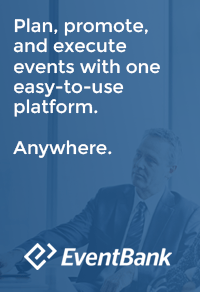Topic
Latinx Data Symposium & Plática Methodology: Centering Our Students to Cultivate Servingness
Participants will be able to:
- Build an understanding of Chicana feminist and Critical Race epistemologies as scholarly traditions that validate experiential knowledge in the creation of more just educational experiences for Students of Color.
- Identify what data currently exist about Latina/o/x/e student experiences at their college; creating tools such as a success study rooted in pláticas that more intentionally center our students’ voices.
- Draft an agenda for a two-day professional learning experience that engages all constituency groups in both learning more about what our students experience as well as committing to action that will better serve and ultimately empower them.
Recommended Audience: Chief Student Services Officers, Student Services Department Leaders, Guided Pathways Teams, Student Success Leaders, Research Officers, HSI Grant & Activity Leaders, Learning Community Leaders
Facilitators: Dra. Michaela Mares Tamayo y Dra. Iris Lucero
Description: This workshop will guide participants through how to plan a Data Symposium that is focused on Latina/o/x/e students. This method will help a college learn how to build more equitable and inclusive practices and structures to achieve what author & researcher, Dr. Gina Garcia calls, "servingness". Based on the historic and successful “Abriendo Caminos to Excellence: PCC Latina/o/x Student Data Symposium” held at Pasadena City College in Fall 2020, this workshop is a detailed exploration of praxis--where research meets practice. Participants will build an understanding of Chicana feminist and Critical Race research frameworks that validate knowledge in the creation of more just educational experiences for Students of Color. Special attention will be placed on the plática methodology (Fierros & Delgado Bernal, 2016), a conversation between researcher and Latina/o/x/e students as co-constructor of knowledge . We will then take participants step-by-step through a research and event design process, which includes identifying what data currently exists about Latina/o/x/e student experiences at their college; creating tools such as a success study rooted in pláticas that more intentionally center our students’ voices; constituting a team of colegas at their college to collaborate on the planning; and drafting an agenda for a two-day professional learning experience that engages all constituency groups in both learning more about what our students experience as well as committing to action that will better serve and ultimately empower them.
Remediating Our Classroom Artifacts: The Equity-Minded Syllabus
Practitioners will be able to:
- Define equity-mindedness and culturally relevant pedagogy as it relates to course syllabus.
- Apply lenses to a key pedagogical tool: the classroom syllabus.
- Curriculum development and policy interpretation to best serve Latina/o/x student success.
Recommended Audience: Chief Instructional Officers, Division Deans, Department Chairs, Faculty Leaders, Adjunct Faculty, Academic Senate Presidents, Professional Development Leaders, First Year Experience Leaders, Learning Community Leaders
Facilitator: Dra. Cristina Salazar-Romo
Description: The equity-minded syllabus workshop will engage participants in using frames of equity-mindedness and culturally relevant teaching practices to address their course syllabus. We will first work on defining these very important lenses and then work to apply them to a key pedagogical tool: the classroom syllabus. Discussion will cover curriculum development and policy interpretation to best serve Latina/o/x student success.
Equity by Design: Operationalizing Liberatory Pedagogy in Curriculum & Student Advisory Groups
Practitioners will be able to:
- Develop/refine asset-based lenses in liberation pedagogy, and other models of validation and affirmation, in an effort to address Latina/o/x student success.
- Learn how to help students develop critical consciousness and use their voices for change in society, on campus, and beyond through intentional curriculum and student advisory groups.
Recommended Audience: Chief Instructional Officers, Division Deans, Department Chairs, Faculty Leaders, Adjunct Faculty, Academic Senate Presidents, Professional Development Leaders, First Year Experience Leaders, Learning Community Leaders, HSI Grant & Activity Leaders, Student Development Leaders
Facilitator: Dra. Cristina Salazar-Romo y Dra. Desiree Zuniga
Description: Originally coined by Paolo Freire, leading advocate of critical pedagogy and Brazilian educator, liberation pedagogy is an anti-oppressive educational approach designed to liberate minds. This session will help practitioners develop/refine asset-based lenses in liberation pedagogy, and other models of validation and affirmation, in an effort to address Latina/o/x student success. Practitioners will learn how to help students develop critical consciousness, the means by which students are empowered to identify, question, and solve relevant problems in society through intentional curriculum and student advisory groups.
Finding Memo y Doris: Recruiting and Hiring Faculty of Color
Practitioners will be able to:
- Identify Key Issues in Faculty Diversity
- Identify Institutional Methods for Hiring More Faculty of Color
- Identify Steps you as a CC Practitioner can take to Help with Faculty Diversity
Recommended Audience: Hiring Committee Members, HR Leaders, Hiring Committee Chairs and Senate Presidents, Administrators, Faculty, Staff
Facilitator: Dr. Ilder Betancourt Lopez
Description: Many times, we are told that we cannot find people of color to hire into the faculty ranks. This workshops offers strategies for recruiting and hiring faculty of color. It also highlights the importance for prioritizing these efforts.
Counseling with Cariño: Infusing Puente's Approach to Transfer Preparation into Guided Pathways
Practitioners will learn:
- Counseling approaches that work for our most systematically marginalized community college students.
- Examples of how to infuse counseling approaches in the guided pathways redesign work.
- Culturally affirming mindsets and equitable practices central to supporting students through each stage of their college journey.
Recommended Audience: Chief Student Services Officers, Students Services Leaders, Deans of Counseling, EOP&S & Categorical Program Leaders, Guided Pathways Teams, Transfer Center Leaders, Counseling Faculty & Classified Staff
Facilitator: Luis Chavez, Senior Director at Career Ladders Project y Puentistas
Description: When Guided Pathways Framework first came onto the California Community College scene, very few counseling faculty were engaged or encouraged to participate in GP statewide sessions. That has changed over the last few years. What has emerged is a common understanding that to improve the student counseling experience, there needs to be a deeper engagement of counselor practitioners in planning and designing for the implementation of Guided Pathways. Also understood is the critical role Counselors have on students’ college experience. Their support helps students feel welcome on campus and impacts how they navigate college–from choosing and completing a program of study to pursuing further education and high-value careers. As we emerge from the pandemic, counselors will be critical in addressing students’ mental health and support needs. Yet many challenges remain in providing equitable wrap-around and timely counseling and student supports for all. Some issues emerge from historical tensions and divisions between the need to serve students and the lack of institutional capacity stemming from existing structures and delivery systems of support. Colleges have taken varied approaches in rethinking and reimagining counseling support delivery. Many colleges are turning to student success teams, coaching, and advising models. Join experienced Puente counselors for an illuminating full-day session about counseling approaches that work for our most systematically marginalized community college students and how some are infusing some of these approaches in the guided pathways redesign work. This participatory session will emphasize culturally affirming mindsets and equitable practices central to supporting students through each stage of their college journey, including setting goals, navigating required coursework, and building community networks that will continue to support them along the way. Career Ladders Project is co-sponsoring this event.
Create Your Own Taller
Do not see a taller that meet your institutions needs? Let's connect and see how we can support you.





